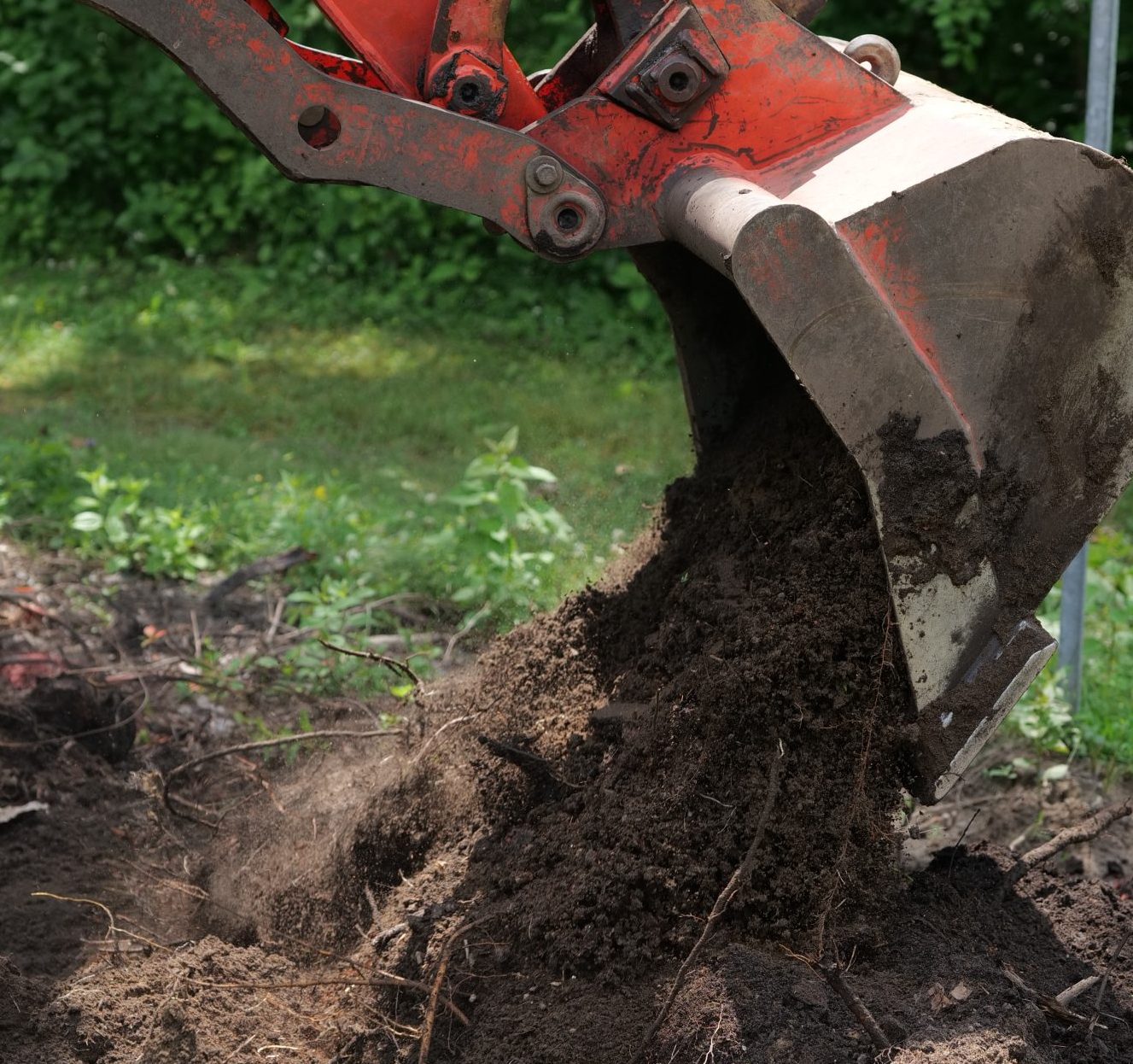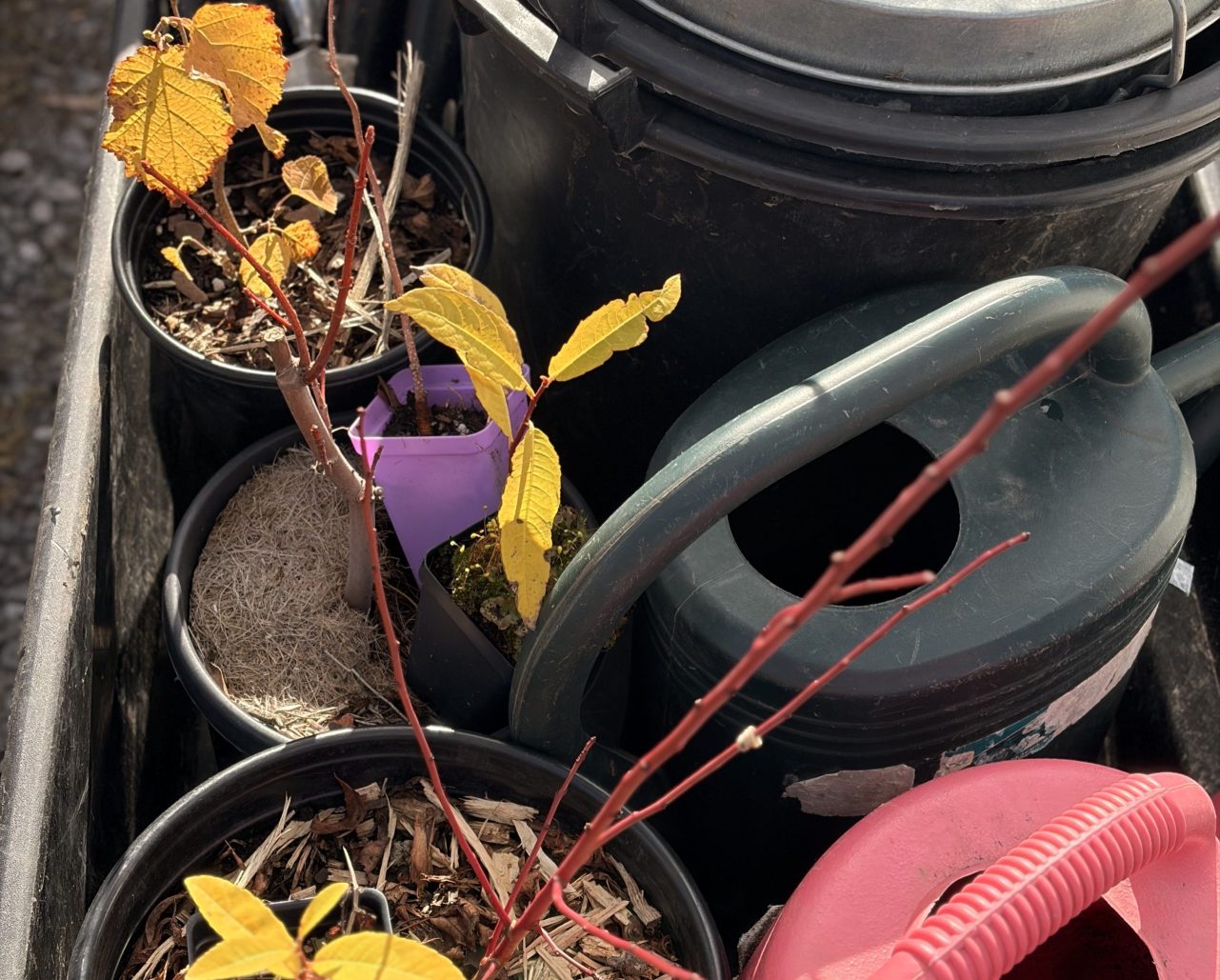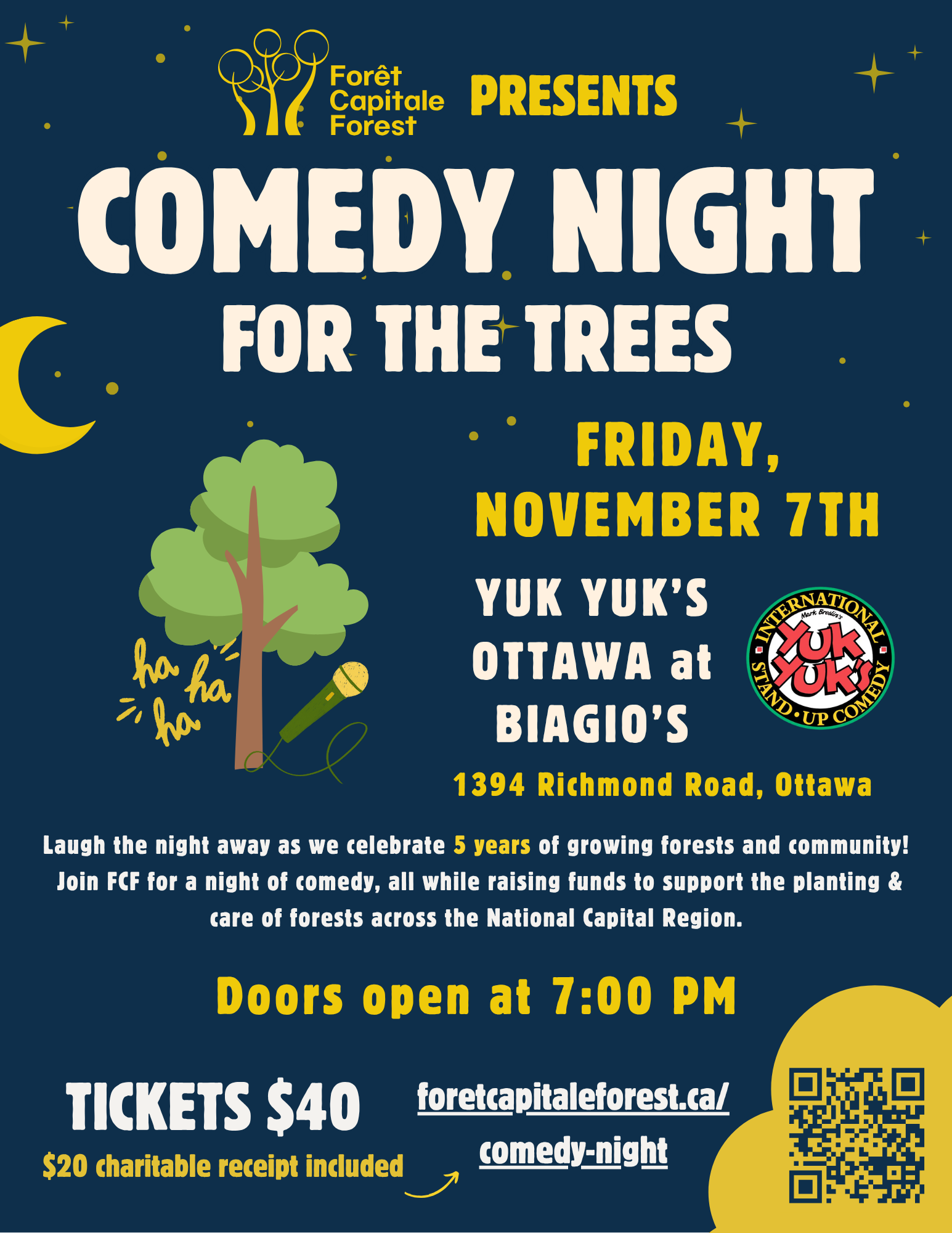Just Food has generously offered to provide Forêt Capitale Forest a place to establish an “operations base” at the Just Food Community Farm located in Blackburn Hamlet. We conduct various afforestation research and demonstration projects that help us adapt our approach to the best afforestation practices specific to the National Capital Region.
Big Plans for Small Forests
The Big Plans for Small Forests project was in part supported by the City of Ottawa’s Community Environmental Projects Grant Program. It is a small-scale community based project to create demonstration mini-food forests that will transform small, underused green spaces. They can become interactive and educational tools to support an environmentally sustainable Ottawa. The purpose of these demonstrations is to showcase examples of how residents can transform small plots into dynamic, biodiverse, food-producing and self-sustaining spaces. This also supports our city through enhanced canopy coverage and the encouragement of biodiversity. Our goal is to provide easy solutions to Ottawa-specific environmental barriers (poor soils, small spaces) to inspire and incentivize tree planting through the generation of home-grown produce, refreshed landscape, thereby also attracting more birds and pollinators.
To engage and educate the broader community, FCF has planted “Tiny Forest” and “Tree Guild” demonstration plots in the community food forests that are under FCF stewardship at its base of operations. These efforts are intended to inspire, educate and provide a living example of what can be done in small urban spaces.
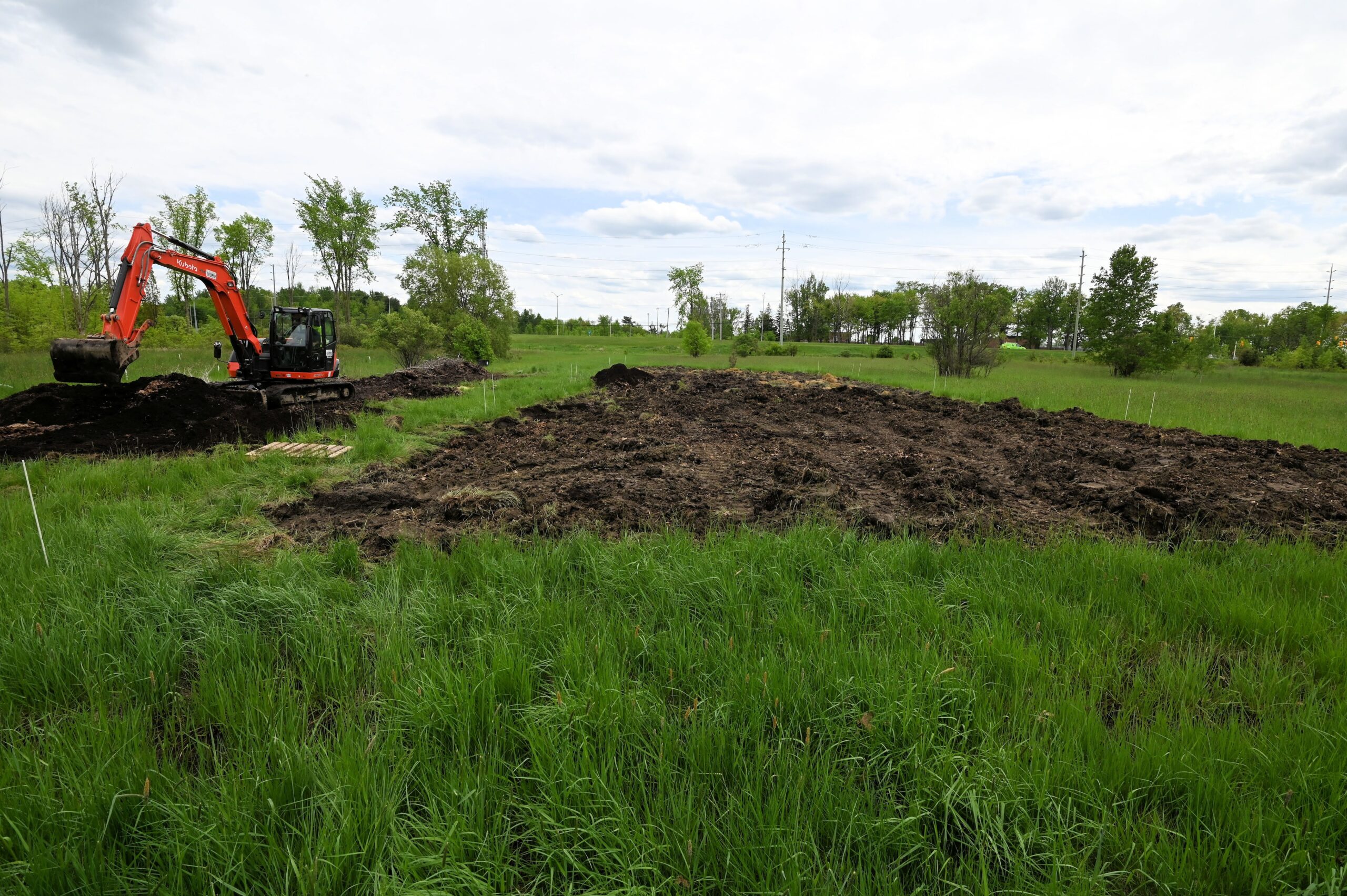
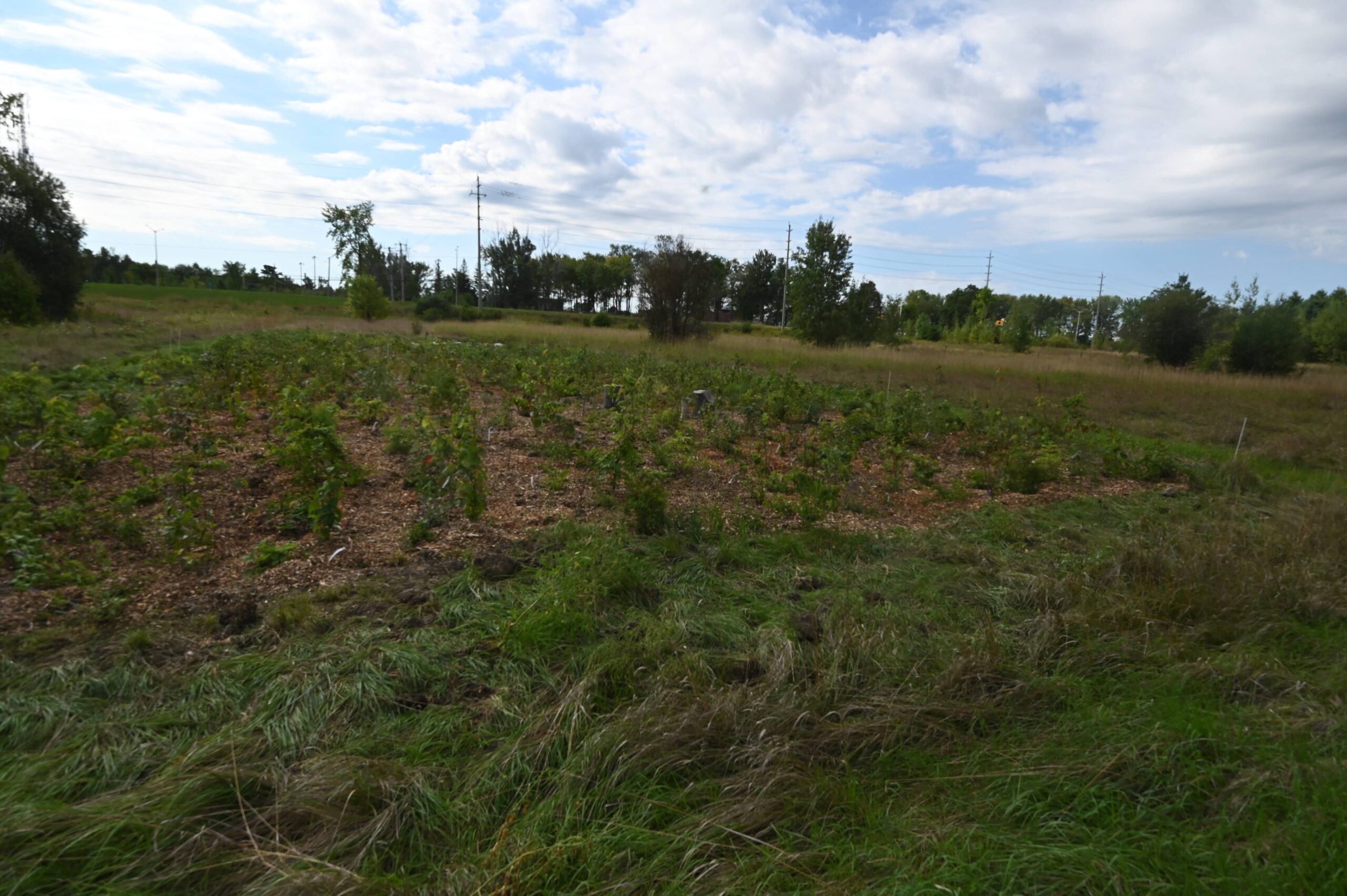
These photos illustrate how effective proper planting of tiny forests is over short periods of time.
Tiny Forest Demonstration Plots
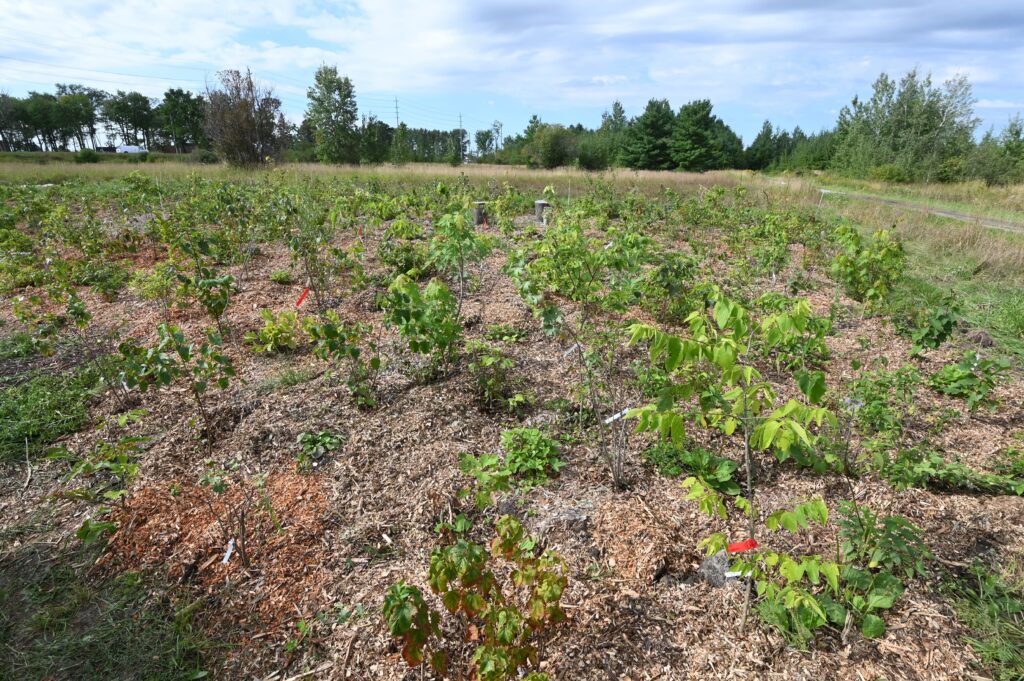
FCF’s Tiny Forest plots demonstrate the Miyawaki method of afforestation. This method is defined by several key aspects that expedite the establishment of forests.
Some key aspects are:
- Soil preparation to mimic a mature forest floor
- Native species selection of trees, shrubs and forbs
- Dense spacing of 3 – 5 species per m2
Since the FCF base of operations is situated at the Just Food Community Farm, we selected a large percentage of the native species in these plots to be edible.
The overall goal of this project is to restore damage to the natural environment, particularly tree loss, due to invasive species, disease, and regional development. The four “Tiny Forests” planted using the scientifically proven and cost effective Miyawaki Method of afforestation are restoring concentrated biodiversity in an urban environment. This project will be used as a demonstration of this model proving that it can be done in Ottawa’s metropolitan area and in some of the toughest soil conditions to spur Tiny Forest growth across the City.
Resources:
- What is the Miyawaki Method of Afforestation (YouTube)
- Making Forests of Life for the Ones You Love “The Green Tide Embankment” (YouTube)
- The tiny urban forests bringing nature to the heart of the city – BBC World Service (YouTube)
- TED Talk by Shubhendu Sharma: How to grow a tiny forest anywhere (YouTube)
Lawn Conversion Guilds
These demonstration sites invite you to rethink your front or backyard. They exist to serve as inspiration and motivation for others. All of them are examples of slightly maintained forest gardens, urban neighbour and pollinator friendly with less water requirements than typical lawns. Many interplanted edible annuals produce food for immediate consumption while trees, shrubs and perennials are growing to maturity.
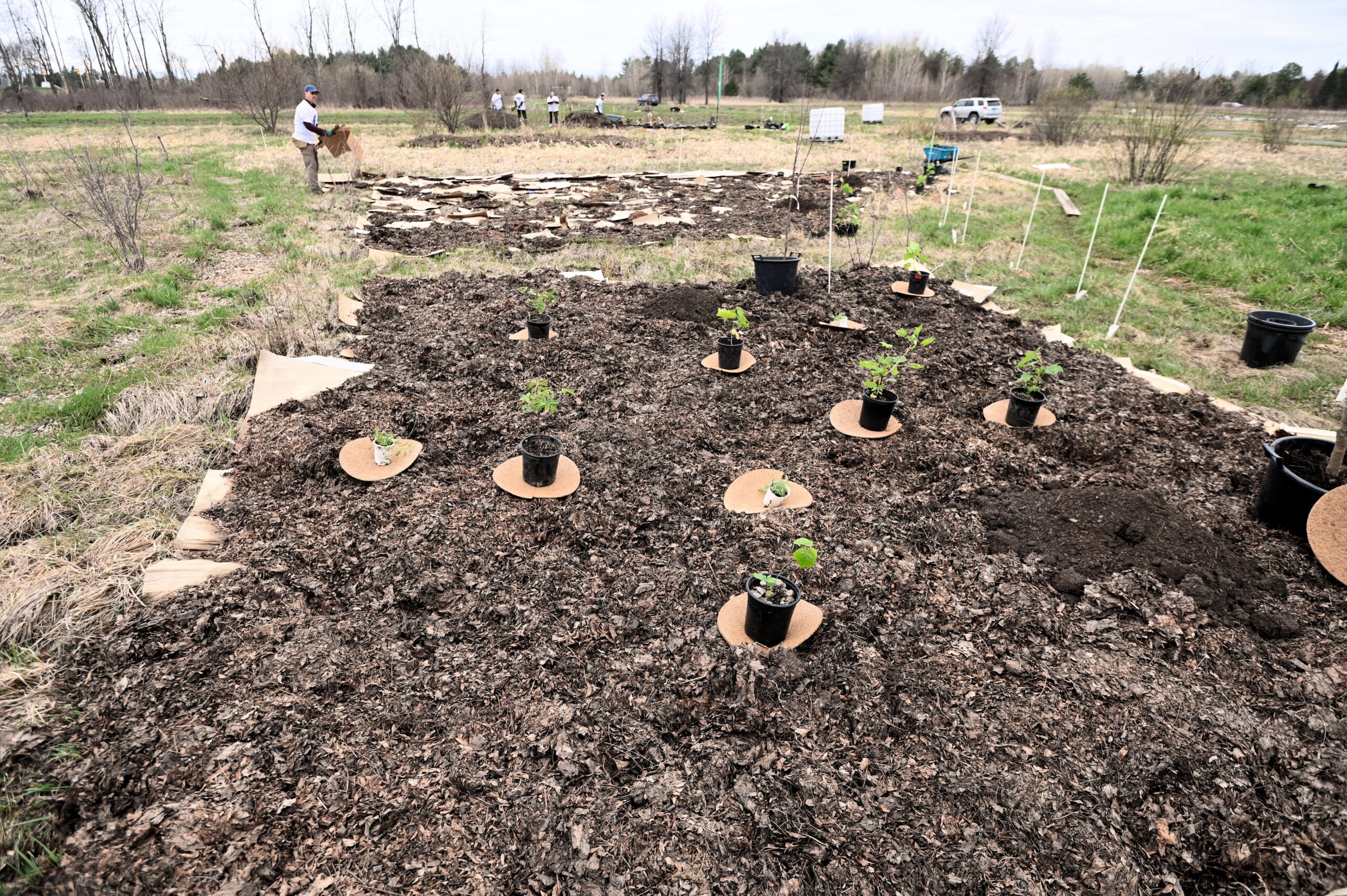
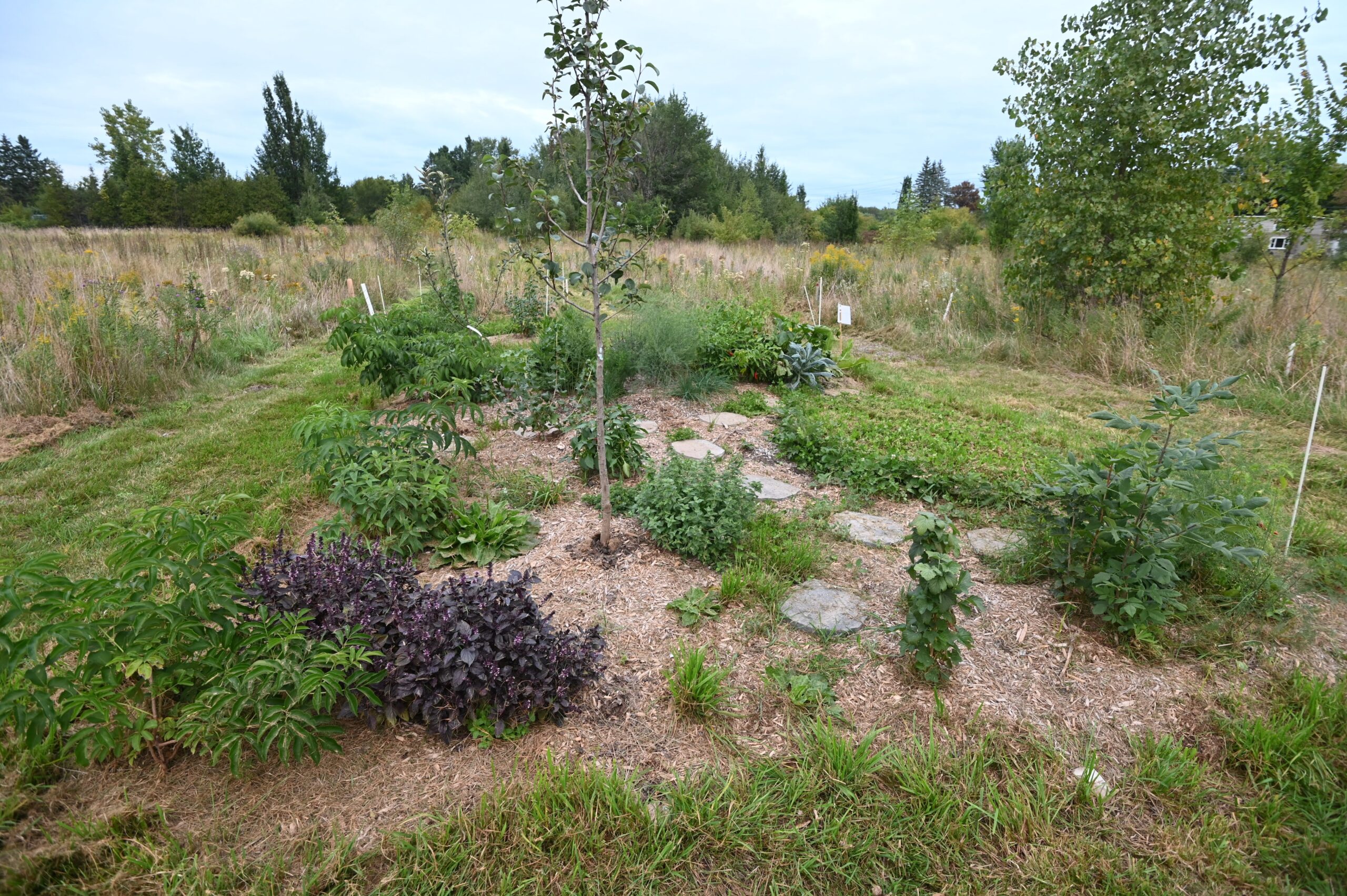
April 2022 (left) / August 2022 (right)
Walking Path
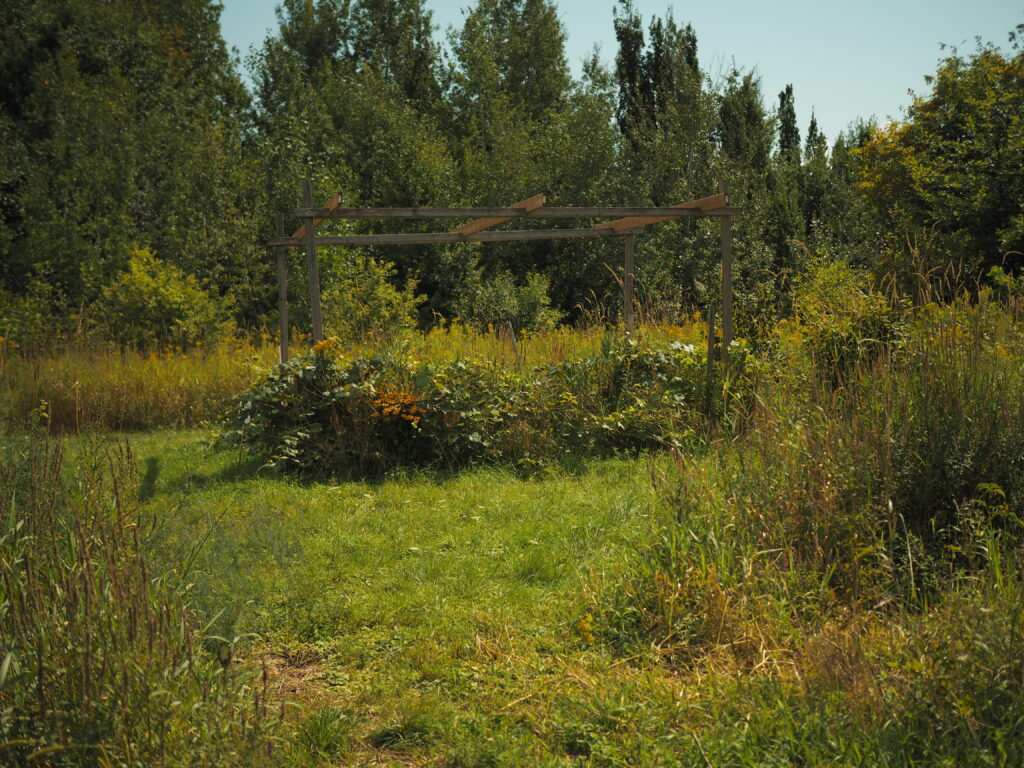
FCF has on ongoing project to build a network of pathways of maintained grass and gravel adorned by educational signage that makes exploring the varied landmarks at our base of operations a pleasure. Along with the ability to host community experiential learning and walking events, it is also meant to inspire the community to set in motion other agroecological projects across the City. The signage will educate the public through the lens of climate change, biodiversity, conservation, and agroecology.
